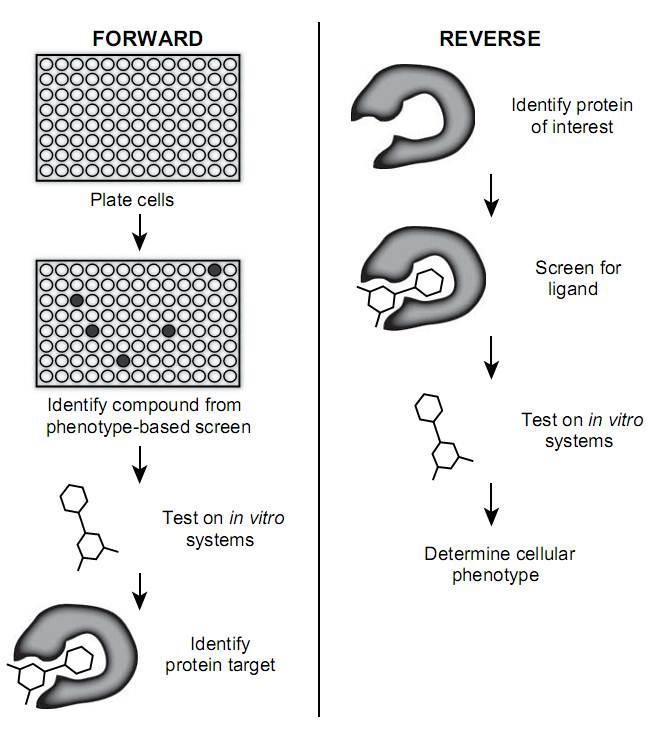High-Throughput Screens
High-throughput screening (HTS) is an approach to anti-cancer drug discovery that has gained widespread popularity over the past few decades. Initially developed for the pharmaceutical sector, HTS has recently been adapted by academic institutions for the discovery of novel therapeutics and biological pathways. HTS entails multiple-well microplates (96-/384-well) and robotic processing to assay large numbers of potential effectors of biological activity against targets, with the goal of accelerating drug discovery via large-scale screening of chemical and genomic libraries often composed of thousands of molecules.
In general, anti-cancer drug discovery can be broadly divided into two distinct approaches, forward/phenotype- and reverse/target-based screening.
To expedite the discovery of novel therapies for head and neck cancer, the Liu lab has recently employed high-throughput screening, wherein two strategies have been undertaken: phenotype-based screens utilizing small molecules, and target-driven screens employing RNAi technology.

High-throughput screening approaches.
Representative Publications:
|